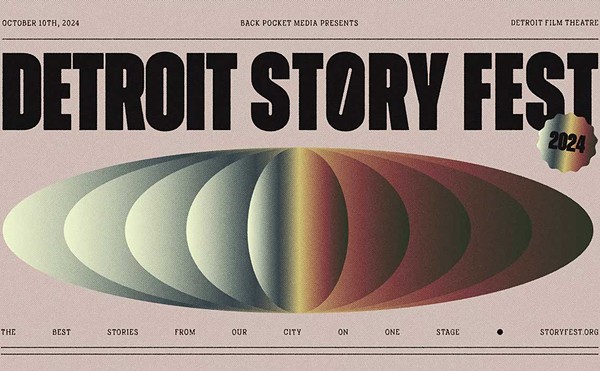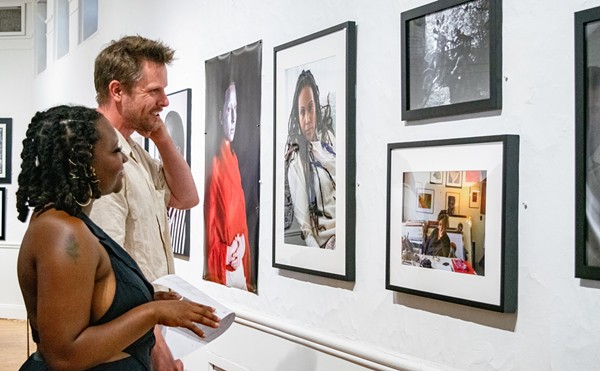Both of these skin-loving, upstart fashion magazines are aimed squarely at the young, modern, Wallpaper demographic. That’s where the similarities end. There is no visible joy to be found in Flaunt; only smooth, glistening, forbidding surfaces unable to satisfy any inner want. It’s in Trace that preoccupations with appearance walk alongside a hedonism that’s comfortable in its own skin (and sometimes barely more).
Perhaps Flaunt merely takes high fashion seriously enough to tell us — and the bored or unhappy-looking models in it — that dressing to the nines isn’t for whiners and won’t make us better people. It’s about the clothes, not your feelings. Flaunt’s attention to discomfort in the line of beauty is severe: Models are not allowed to smile for the camera and we’re not invited to smile back.
Eliciting disgust may be Flaunt’s cornerstone this month. Actor Ryan Phillippe is both coverboy and subject of a mock chicken-hawk porn shoot that makes those sensational Calvin Klein ads of a year ago seem positively tame. And a gratuitous lipstick-only spread leaves a young waif teasing the boundary between the settings for prostitution and drug abuse at the lowest end of our social ladder. These are only two of the moments when Flaunt verges on Benettonlike social-conscience shock-as-exploitation. There are plenty more, but all of them are so conflicted and unexamined that they remain distasteful in look and feel.
Trace, thankfully, gives us a lot of what we’re left wanting. The approach to fashion and social interpretation is presented clearly, with moments of surprise and discovery. And even the models and informants are presented in a context, which makes them subject to query and examination.
Trace immerses us in a world of filmic beauty (and struggle) where pleasure and attractiveness are available in both racy Helmut Lang outfits or in old tank tops and shorts. Both high end and low are treated with the same sensuality, offered up as if a healing balm. And whether you’re invited to imagine yourself climbing down some model’s cleavage, scaling the taut calf of a soccer-tanned Adonis or finding a place in the race-class-culture maze of Brazilian diversity, the feeling of a positive horizon for exploration never disappears.
Flaunt’s best hope is to convince us that fashion isn’t good for us. But without serious (and ideologically suspect) deprogramming, we do pay attention to how we and others look. Trace is honest about that desire. If looking good is about making the self desirable, approachable and even socially pleasurable, then Trace has it all down. Because Flaunt really is only as good as its name — its look as cold as meeting an ex at a New Year’s Eve party, dolled and coifed to perfection and icy inside.
Marc Christensen writes about books and music for Metro Times. E-mail [email protected].





